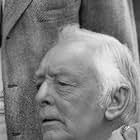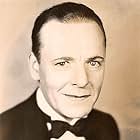Episodes in the adventurous life of the American novelist (1876-1916).Episodes in the adventurous life of the American novelist (1876-1916).Episodes in the adventurous life of the American novelist (1876-1916).
- Nominated for 1 Oscar
- 1 nomination total
Photos
Albert Van Antwerp
- French Frank
- (as Albert van Antwerp)
Storyline
Did you know
- TriviaThe imaginative artwork of a shirtless Michael O'Shea in the title role bears only minimal resemblance to O'Shea himself, who, by the way, never appears shirtless at any point in the film.
- Crazy creditsOpening credits listed in turned pages of a book.
Featured review
Aside from the fact that the actor, Michael O'Shea, looked a lot like Jack London, there is nothing positive I can say about this monstrosity of a film. It purports to be a film about the life of London, but frankly it bears about as much similarity to his life as it does Foghorn Leghorn's or Lassie's! Plus, the real reason for this film is a thinly disguised anti-Japanese rant.
As far as London's life goes, aside from a few sketchy details, most of his life is unrecognizable in the film. In real life, he was married twice, ran about with prostitutes and died quite young--none of which are even alluded to in the film! Instead, it mostly fictionalizes his life up until he became a war correspondent during the Russo-Japanese War (shortly after the turn of the century). And, while London was really a correspondent at that time, the film is basically an anti-Japanese picture--taking the worst of London's experiences and adding a lot of 'we will one day rule the world' thrown in to boot. Now I DO understand why this was done--after all, the Japanese and US were fighting a war against each other in 1943. And, it was true that there were militaristic forces that felt exactly like the characters in the film--but the film was about 1903-1904--not 1943. And so, to make the Japanese look terrible, the film took many liberties. This is funny, as during the actual Russo-Japanese War, American sentiments were mostly pro-Japanese! The bottom line is that the film makers should have either made a real biography of London or they should have made an anti-Japanese propaganda film. Propaganda films have a positive place if done correctly and reasonably accurately (this IS possible and the US made many such films during the war). Because the film tries to be both, it does a terrible job of both--and completely sanitizes and obscures London's real life exploits (which WOULD make for a fascinating film) and comes off as preachy and fake. Bad propaganda and even worse history--even O'Shea's good acting and the presence of a young Susan Hayward could do nothing to overcome a crap script.
By the way, if you'd like to see a Japanese movie about a real life person that is filled with anti-American propaganda due to it being made during WWII, try watching Akira Kurosawa's film from his Judo series--"Sanshiro Sugata Part Two". While the film was set during the 1800s, an evil American was randomly thrown into the film to get beaten up by the hero of the story and to bolster anti-American sentiments in the audience! It manages to be even more superficial than "Jack London" in this regard.
As far as London's life goes, aside from a few sketchy details, most of his life is unrecognizable in the film. In real life, he was married twice, ran about with prostitutes and died quite young--none of which are even alluded to in the film! Instead, it mostly fictionalizes his life up until he became a war correspondent during the Russo-Japanese War (shortly after the turn of the century). And, while London was really a correspondent at that time, the film is basically an anti-Japanese picture--taking the worst of London's experiences and adding a lot of 'we will one day rule the world' thrown in to boot. Now I DO understand why this was done--after all, the Japanese and US were fighting a war against each other in 1943. And, it was true that there were militaristic forces that felt exactly like the characters in the film--but the film was about 1903-1904--not 1943. And so, to make the Japanese look terrible, the film took many liberties. This is funny, as during the actual Russo-Japanese War, American sentiments were mostly pro-Japanese! The bottom line is that the film makers should have either made a real biography of London or they should have made an anti-Japanese propaganda film. Propaganda films have a positive place if done correctly and reasonably accurately (this IS possible and the US made many such films during the war). Because the film tries to be both, it does a terrible job of both--and completely sanitizes and obscures London's real life exploits (which WOULD make for a fascinating film) and comes off as preachy and fake. Bad propaganda and even worse history--even O'Shea's good acting and the presence of a young Susan Hayward could do nothing to overcome a crap script.
By the way, if you'd like to see a Japanese movie about a real life person that is filled with anti-American propaganda due to it being made during WWII, try watching Akira Kurosawa's film from his Judo series--"Sanshiro Sugata Part Two". While the film was set during the 1800s, an evil American was randomly thrown into the film to get beaten up by the hero of the story and to bolster anti-American sentiments in the audience! It manages to be even more superficial than "Jack London" in this regard.
- planktonrules
- Sep 7, 2011
- Permalink
Details
- Release date
- Country of origin
- Languages
- Also known as
- The Adventures of Jack London
- Filming locations
- Belden, California, USA(Belden Falls)
- Production company
- See more company credits at IMDbPro
- Runtime1 hour 34 minutes
- Color
- Aspect ratio
- 1.37 : 1
Contribute to this page
Suggest an edit or add missing content

































